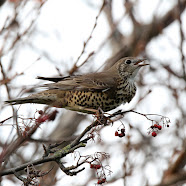from their unseeing eyes—
Guarding words from Scripture, poets, philosophers, the Book of Common Prayer, and the common man.
Tuesday, January 26, 2021
Tears
from their unseeing eyes—
Tuesday, January 5, 2021
I Shall but Love Thee Better after Death. . .
Dear Aaron,
“I love you not only for what you are, but for what I am when I am with you. I love you not only for what you have made of yourself, but for what you are making of me. I love you for the part of me that you bring out.”
—Elizabeth Barrett Browning
Perhaps it sounds a little selfish, but I think the heart of Miss Browning's above lines is this: you are such an inspiring person that those who are given the gift of truly knowing you can't help but become better because of you.
She's right, you know. So many times I have mourned the loss of your friendship, and then the loss of your life—and in that, I've mourned the loss of part of myself. Some part of myself was diminished when you shut me out of your life—and that part of me died with you, Aaron. I grieve that the world is a poorer place without you, you generous soul. I grieve that your family keenly feels your absence. And I grieve the loss of beauty, cheer, and depth I once had when we were so regularly in touch.
There have been persons in my life who seemed to call out the worst in me; I did not like myself when I was around them. My family and friends didn't like who I was when such persons were in my life. But you weren't like that. You called my mind and heart to soar upward; to look toward God's Beauty, reflected in nature and poetry and music. You inspired (breathed life into) me to want to read more, think more, live more, experience more. I love the part of me that you brought out. I mourn that part of myself, now buried with you. And I eagerly await the renewal and resurrection of that part of me in the New Kingdom. It will be refined and redeemed... To know you again, not as we did, but in a much fuller way, will bring out a facet in me (and you!) that we only had a glimpse of during the years we were friends.
I can only pray that my own friendship, such as it was, inspired you and made your life somehow better, friend. And I pray that in the New Kingdom we will continually draw out the good in one another, calling one another "Further up, and further in!"
As I read Elizabeth Barrett Browning's gentle lines again, I realised why I still write to you, Aaron. I still write to you because I still love you. I will always love you. I love who you were. I love who you inspired and encouraged me to be. And I can't wait to get to learn to love you anew in the Kingdom Coming. It will be a different love there—a love pure and untainted by selfishness or any fallen thing. Loving you in the Kingdom will be something glorious that our earthly friendship could only catch a glimmer of.
I love you, friend. I love much of what you love. I love your sincerity and earnestness. I love your love for Beauty. I love your silliness and exuberance (from ringing bells to quoting poetry on tables and playing guitar until people hollered at you). I love your generosity. I love your unquenchable thirst for wonder and for knowledge. I just love YOU. And I miss you. Oh, friend, I miss you. So. Much.
How do I love thee? Let me count the ways.
I love thee to the depth and breadth and height
My soul can reach, when feeling out of sight
For the ends of being and ideal grace.
I love thee to the level of every day’s
Most quiet need, by sun and candle-light.
I love thee freely, as men strive for right;
I love thee purely, as they turn from praise.
I love thee with the passion put to use
In my old griefs, and with my childhood’s faith.
I love thee with a love I seemed to lose
With my lost saints. I love thee with the breath,
Smiles, tears, of all my life; and, if God choose,
I shall but love thee better after death.—Elizabeth Barrett Browning
Friday, January 1, 2021
The Darkling Thrush
But.But I want to be like that frail, weather-beaten, aged thrush.I want to fling my soul out into the gloom of the gathering storm.
— Mary Ann Evans (aka: George Eliot), Middlemarch






